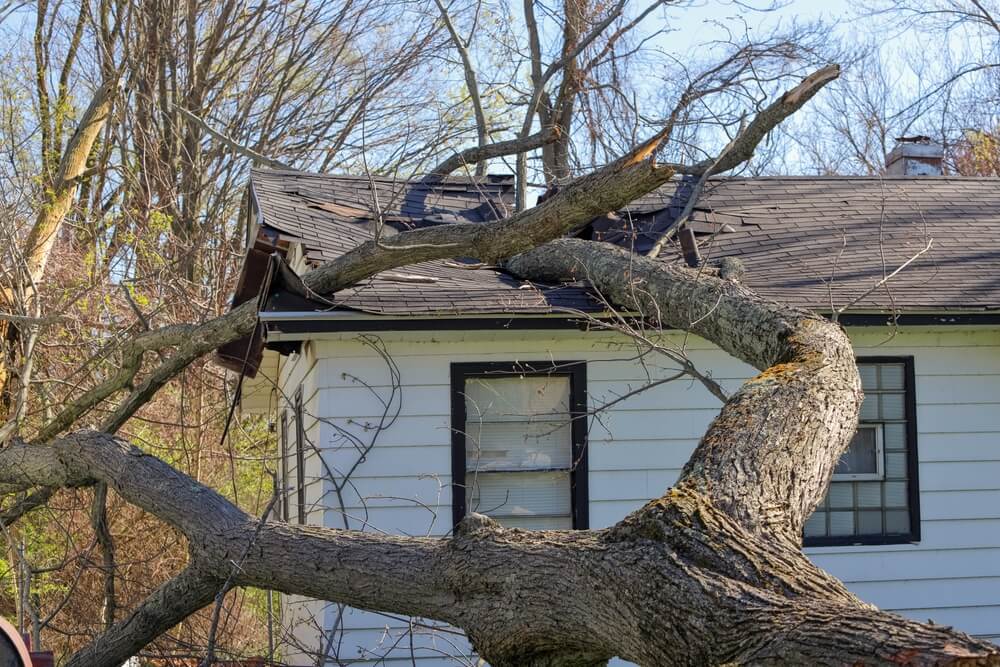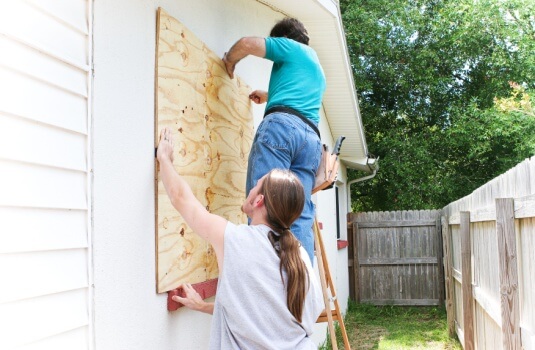
The sky turns an ominous black, and the wind is whipping through the branches of the trees that surround your property. Suddenly, in the distance, a large funnel appears and you hear the unmistakable whistling sound of a tornado. Before long, the tornado strikes, wiping out things in its path. Your shed, outbuilding, and garage are destroyed. What now? Fortunately, you have homeowners insurance and it provides disaster insurance for GA homes. This coverage is essential in such a scenario.
You never know when an unexpected natural disaster may cause harm to your property. It pays to secure coverage, such as natural disaster insurance, from your insurer. If you’ve ever wondered, “Does home insurance cover natural disasters?”, read on for more information and to be sure your home is covered.
Understanding Georgia’s Natural Disaster Risks
If you’ve lived in Georgia long, you know it has plenty of natural disasters, just like any other state. Not only do climate change issues threaten your home, but seasonal changes can also deliver nasty weather. Understanding the risks that come with an event can help you prevent some of the worst damage.
Common Natural Disasters in Georgia
- Hurricanes and tropical storms: Being close to the coast has its pros and cons. While it’s nice to have the ocean nearby, Georgia also experiences heavy rain, flooding, and wind from Atlantic hurricanes.
- Flooding: When heavy rains sweep in from tropical systems, rivers and creeks may overflow, causing flooding. You can learn ways to lower your home insurance when living in a flood zone.
- Severe thunderstorms: Severe thunderstorms can deliver damaging winds, lightning, and hail.
- Tornadoes: Watch out for the funnel in the sky, which is more common in spring and early summer, especially in central and southern Georgia.
- Wildfires: Areas that experience drought may see fires.
- Snow: Yes, sometimes the white stuff falls from the sky in Georgia. Learn what to do when snow falls in Georgia.
Fortifying Your Home Against Disasters
Taking a few precautionary steps to fortify your home will protect it in the event of a natural disaster.
Strengthening Your Roof and Foundation
You can strengthen and protect your roof by installing hurricane straps or clips. This will help anchor it to the walls. Seal the roof to keep water out. When installing shingles, be sure they are rated for high winds.
Secure the foundation by making sure it’s properly anchored to the structure. If you’re in a flood-prone area, consider flood vents or raising your home.

Protecting Windows and Doors from Breaking
Install impact-resistant windows or purchase storm shutters to protect windows from damage. You can reinforce doors with heavy-duty bolts and a strong frame. Use garage doors that are wind-rated for the best protection against collapse.
Secure the Outside Features of Your Home
Not only does the interior of your home need protection, but the outside features do as well. Here are tips for securing them.
- Secure outdoor items: Tie down or store outdoor items such as patio furniture, tools, grills, swing sets, and trash cans.
- Trim trees and bushes: By removing dead or weak branches, you reduce the risk of limbs falling on your home and damaging it.
- Secure fencing and sheds: Anchor or reinforce fencing, sheds, and other outdoor structures to the ground.
Insurance Coverage for Georgia Homeowners
No need to be overwhelmed by added financial issues. With your homeowners insurance in Georgia, you cut out-of-pocket costs. Your standard policy should include coverage for wind, hail, and fire, but you may need to purchase separate policies for other weather-related damage. An agent can help determine whether storm insurance in Georgia is a good option for your policy.
Preparing for Natural Disasters in Georgia
If you know inclement weather is headed your way, take steps to prepare for it.
Tornado Preparedness Strategies
- Create a safe room or storm shelter — ideally, it should be a small interior room on the lowest level of your home without any windows.
- Secure outdoor items because they can cause damage if they become airborne.
- Reinforce your home’s structure, as mentioned earlier.
- Prepare an emergency kit and communication plan.
Hurricane Readiness Tips
- Install storm shutters or board up windows.
- Reinforce garage doors and roof.
- Secure or bring in outdoor items.
- Elevate critical utilities.
- Clear gutters and drains.
Post-Disaster Recovery Tips
After a natural disaster strikes, you may feel overwhelmed by the damage. Take time to assess the damage and rebuild safely.
Assessing Damage and Rebuilding Safely
Reviewing and assessing the damage after a natural disaster is critical to start the rebuilding process. Before rushing in to see what the damage is, make sure the authorities have deemed it safe to return. Once they have, you can inspect the damage. Look for structural damage as well as hazardous situations such as gas leaks, exposed wires, or standing water. Take time to accurately and thoroughly document all damage by writing down the issues and taking photos. This will aid in the insurance claims process.
To rebuild safely, you must follow local regulations and building codes. In the rebuilding process, use disaster-resistant materials so your home is protected better in the future. Work with experienced licensed contractors who are familiar with post-disaster recovery. You can use this time to upgrade parts of your structure and elements of your home. You may find it wise to invest in more weather-resistant materials.
Navigating Insurance Claims
Navigating insurance claims after a natural disaster does not need to be complicated. The first step is to contact your carrier. An experienced agent will know how to guide you in filling out a claim for damages. You will need to have thorough documentation ready for the insurance company.
The process starts with promptly contacting your insurance company to report the damage. Document all losses with photos, videos, and detailed lists before making any temporary repairs to prevent further damage. Keep receipts for any emergency expenses or repairs. Work closely with your adjuster, ask questions, and review your policy to understand your coverage and deductibles.
Keep in mind your neighbors will also be calling, so be patient and stay calm. Being organized and persistent can help speed up the claims process and ensure you receive the support you’re entitled to.